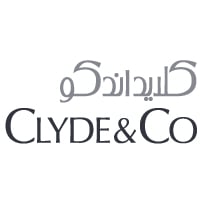

Chief Legal, Governance, ESG Officer, Corporate Secretary | Banque Saudi Fransi (BSF)



Abdallah Alshaikh
Chief Legal, Governance, ESG Officer, Corporate Secretary | Banque Saudi Fransi (BSF)
Team size: 37
What are the most significant cases and/or transactions that you have been involved in over the past year?
As the first full-time General Counsel of BSF, I established the Legal & Governance Group as a centralised function supporting all departments of the bank. Within the group, I created specialised divisions for Legal Advisory and Litigation, among other areas, to embed legal expertise at scale and ensure responsive, business-aligned legal support across the organisation.
On the litigation front, I managed a portfolio of disputes – both initiated by and brought against the bank – collectively exceeding multiple billion SAR. We achieved a success rate of over 95%, resulting in substantial financial recoveries and the reversal of major legal provisions. More importantly, this success elevated the credibility of the in-house litigation function and positioned it as a strategic asset. The team now handles complex, high-risk disputes with minimal reliance on external counsel, maintaining both cost efficiency and institutional knowledge.
On the legal advisory side, I’ve focused on embedding legal early in the lifecycle of all business and support initiatives. This proactive engagement has played a key role in reducing the number of new legal claims, by enabling risks to be identified and resolved during the planning phase. Over the past year, I’ve led the structuring and legal oversight of several strategic initiatives whose collective value exceeded several billion Riyals. These projects required close coordination with senior leadership, risk functions, and regulators – ensuring compliance, accelerating execution, and reinforcing the bank’s credibility in complex, regulated transactions.
As a result, the Legal & Governance Group is now deeply integrated into executive-level discussions, with legal seen not only as a control function, but as a trusted enabler of strategic delivery.
Based on your experience, what is the key to collaborating successfully with business partners?
Successful collaboration between legal and business functions depends on mutual understanding and early engagement. In-house counsel must be commercially minded, capable of seeing opportunities through a business lens and offering legally sound yet practical solutions that enable them while mitigating risk. This mindset requires more than legal knowledge; it involves creativity, problem-solving, and empathy with business pressures and goals.
At BSF, I’ve worked closely with senior management and front-line teams to integrate legal into the decision-making process. This has allowed legal risks to be flagged and resolved without slowing down business momentum. I also encourage legal team members to spend time with business units, always with the goal of crafting solutions that help achieve business objectives while effectively managing risks.
On the other side, I’ve helped business leaders appreciate that legal’s role is not to say “no,” but to find the best way to say, “yes responsibly.” The result has been faster execution and significantly fewer post-deal issues.
Apart from legal matters, has the team worked on other company initiatives you would like to highlight?
As legal considerations underpin nearly all business activity, the Legal & Governance Group at BSF is involved across the bank from an early stage — not only in revenue-generating areas, but also across support functions such as HR, Marketing, Procurement, Digital, and IT. We’ve reviewed and shaped major policy frameworks, supported digital transformation initiatives, and helped structure key vendor relationships to be more agile.
Beyond traditional legal work, our scope includes Corporate Governance (including Subsidiaries Governance), ESG, Shariah Affairs, and the Board Secretariat— all critical to the bank’s regulatory and reputational standing. Having these functions under the General Counsel’s oversight brings two key benefits: a high level of independence from business lines and stronger assurance that these areas operate in line with both legal requirements and best governance practices.
This integrated model has also enabled us to create synergies — for example, aligning board governance processes with regulatory requirements as well as ESG reporting obligations.
What do you think are the key things to remember to motivate and manage the other members of your legal team?
Trust, empowerment, and recognition are essential elements for motivating and managing legal teams. Leaders should delegate authority thoughtfully, allow team members to take ownership of meaningful matters, and provide public recognition for their achievements. Equally, even after delegation, leaders must continue to take responsibility when things go wrong to create a psychologically safe environment.
Development opportunities are also critical. Leaders should not only support formal training but also promote cross-functional exposure and stretch assignments that challenge lawyers to grow. Internal forums for open dialogue help build a learning culture and foster team unity.
Ultimately, when legal professionals feel trusted, respected, and invested in, they are more likely to take initiative, contribute creatively, and deliver at a consistently high standard.
Chief legal, governance & ESG officer, Corporate secretary | Banque Saudi Fransi (BSF)